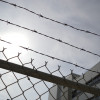What causes middle age spread
Interview with
As you get older, it seems to get harder and harder to stop yourself piling on the pounds. Now, in a study that used fallout from historic nuclear bomb tests to measure the rates at which people burn fat, biologists in Sweden have confirmed that this is a definitely true, and it’s also not your fault! Everyone’s rate of fat burning drops with age. Phil Sansom heard why from Kirsty Spalding…
基-We decrease the rates at which we burn fat as we age. It's quite a simple message. If you don't adjust how much you eat, over the lifespan, you will gain weight. We followed people for up to 16 years and roughly, over a 13 year period, those people that didn't adjust the amount of food they ate, they went up roughly by about 20 perc ent in their body weight.
Phil - What's surprising about that?
基-I don't think it's particularly surprising. I think it's just that it's the first time it's been scientifically proven. In this study we were actually able to take a biopsy from a person at the beginning of the study and then, later, take another biopsy; so we could really see what is happening within one individual as they age.
Phil - The tricky thing to measure here is the rate that your body turns over fat cells - burns old ones and makes new ones. When she does a biopsy, Kirsty needs to figure out how old the cells are that she's looking at, and they have an ingenious solution that uses - of all things - nuclear bombs...
基-So during the 50s and 60s period of the Cold War there was a lot of aboveground nuclear bomb testing. And there's a significant increase in the levels of radioactive carbon in the atmosphere. And so what we see is that these radioactive levels shot right up and then, around 1963 when the test ban treaty came into effect, these values start to go down exponentially.
Phil - The radioactive carbon is called carbon-14; and you can get a graph of how the ratio of carbon-14 to normal carbon in the atmosphere went down every year after the test ban.
基-We incorporate the atmospheric levels of carbon that are represented in the plants get incorporated into our body. So we look at the ratio of the radioactive carbon to stable carbon in the triglycerides - the fat cells.
Phil - That ratio gives you the date the fat cell was made and voilà...
基-I had expected that we would find middle age, perhaps, that was when you would see the effect of the decrease in the burning rate of fat. But actually we found it across the lifespan. So even in people at the start of the studies, that were in their 20s, they equally reduced the turnover rates of their fat cells. So it's not like we're all fine until suddenly we hit 50 or 60 and then it starts to decrease.
Phil - Kirsty and her colleagues did a second study where they followed women who had just undergone bariatric surgery - weight loss surgery - they were looking at whether the women would gain weight again straight afterwards...
基-What could be predicting and contributing to those women that maintain the weight loss, and those women that didn't? Intriguingly, it wasn't the obvious things like their BMI; their body fat at the start of the study; their age. It was the rate at which they turn over the fat. Two thirds of the women that actually had a low burning capacity, they were the ones that actually had significant weight loss. Five years later, they managed to maintain the weight loss. It sort of suggests that they have an ability to increase the rate at which they burn their fat that enables them to maintain the weight loss all these years after the surgery. I mean, the fact that they had a slow burning rate of fat in the beginning might have been what, you know, also predisposed them to becoming obese. But this was the strongest predictor who was going to go on to maintain weight loss and who wasn't.
Phil - So it's a confusing picture but the key message is that your body's rate of burning fat makes a big difference to putting on weight. But what can you actually do about it?
基-The old mantra that no one really wants to hear or they want the magic answer is exercise. Exercise is one of the major ways to increase the rate at which you burn fat. This is common sense, and this is commonly known, but this scientifically really hammers home this point. But it also opens up an avenue for therapeutics. Potentially, if you can stimulate the rate at which you burn fat, I mean this now is the target. But there is no commonly-accepted therapeutic right now that will increase the rates in which you burn fat. There is no magic pill...









Comments
Add a comment